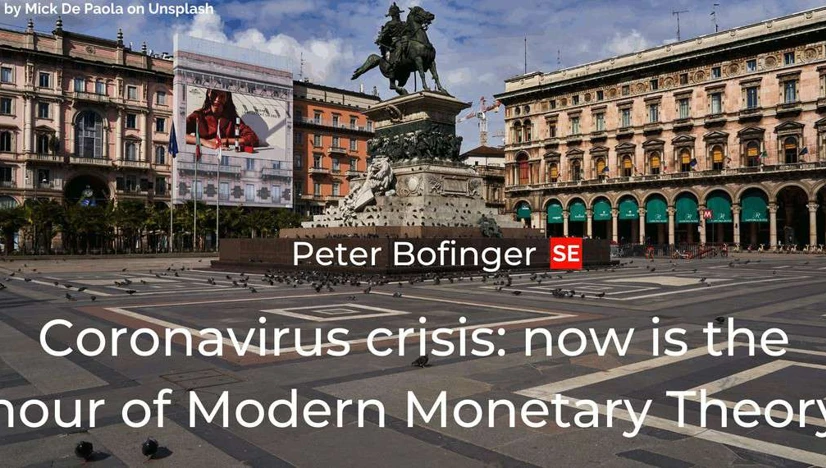Coronavirus crisis: now is the hour of Modern Monetary Theory
Social Europe, 2020
Peter Bofinger (University of Würzburg) calls for a mix of economic policy measures to mitigate the effects of the corona crisis. In his opinion, these include the model of a short-time work allowance, as Germany has already presented it. In addition, the provision of interest-free loans is a good measure, at least in the first instance, but not enough in the long term. According to Bofinger, the state must pay for the losses of certain companies with direct subsidies. In this respect, he proposes above all a negative income tax, which could also count for taxes in 2019.
Comment from our editors:
He does not consider the financing of such measures to be problematic. Using the example of the world wars, he shows that major industrialised countries are able to cope with massive government debt in times of crisis. Theoretically, he is building on the Modern Monetary Theory, which states that large states have no restrictions on financing expenditures as long as they have currency sovereignty. Since this is not the case in Europe, Bofinger proposes financing in the form of Eurobonds. This would mean that financing would not take the form of a loan but of a direct transfer.
Go to: Coronavirus crisis: now is the hour of Modern Monetary Theory

